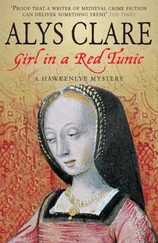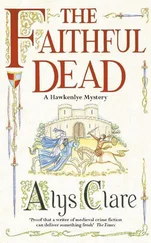Alys Clare - Heart of Ice
Здесь есть возможность читать онлайн «Alys Clare - Heart of Ice» весь текст электронной книги совершенно бесплатно (целиком полную версию без сокращений). В некоторых случаях можно слушать аудио, скачать через торрент в формате fb2 и присутствует краткое содержание. Год выпуска: 2007, Издательство: Hachette Littlehampton, Жанр: Исторический детектив, на английском языке. Описание произведения, (предисловие) а так же отзывы посетителей доступны на портале библиотеки ЛибКат.
- Название:Heart of Ice
- Автор:
- Издательство:Hachette Littlehampton
- Жанр:
- Год:2007
- ISBN:нет данных
- Рейтинг книги:4 / 5. Голосов: 1
-
Избранное:Добавить в избранное
- Отзывы:
-
Ваша оценка:
- 80
- 1
- 2
- 3
- 4
- 5
Heart of Ice: краткое содержание, описание и аннотация
Предлагаем к чтению аннотацию, описание, краткое содержание или предисловие (зависит от того, что написал сам автор книги «Heart of Ice»). Если вы не нашли необходимую информацию о книге — напишите в комментариях, мы постараемся отыскать её.
Heart of Ice — читать онлайн бесплатно полную книгу (весь текст) целиком
Ниже представлен текст книги, разбитый по страницам. Система сохранения места последней прочитанной страницы, позволяет с удобством читать онлайн бесплатно книгу «Heart of Ice», без необходимости каждый раз заново искать на чём Вы остановились. Поставьте закладку, и сможете в любой момент перейти на страницу, на которой закончили чтение.
Интервал:
Закладка:
‘How many lie sick at present, Sister?’ Helewise made herself ask, conquering her revulsion and trying to replace it with pity.
‘There’s the two merchants — one, the elder man, is close to death and will not last the day, but the other begins to recover. There’s the woman who brought in the dead child; she takes a little water and all may be well with her. There’s dear old Firmin, bravely trying not to complain but beside himself with fever most of the time.’ Glancing at Helewise, she added quietly, ‘And there’s the five who arrived just before you came down here, plus their three relatives who are making their way to us.’
‘Are all the victims from Newenden?’ Josse asked quietly.
Sister Euphemia turned to him. ‘The merchants had called in at the town,’ she said. ‘They sold a bunch of basil leaves to the woman with the dead baby. Today’s arrivals come from a village to the east of Tonbridge.’
‘It lies between Newenden and Hawkenlye?’ Josse asked in a pressing whisper.
‘Aye, it does,’ the infirmarer agreed.
Josse let out a gusty sigh of relief. ‘Then let us hope and pray that our two merchants came straight from that village to Hawkenlye,’ he said. ‘If they paid a visit to Tonbridge first, then. .’
He did not finish his sentence, for which Helewise was very grateful; she did not even want to think about what would happen if the pestilence broke out in the narrow, dirty and crowded streets of the town.
She sensed Josse’s sudden restlessness. ‘I shall ride down to see Gervase de Gifford,’ he announced abruptly. ‘I must report to him of my discoveries concerning the young man who died here,’ he added, explaining himself to the infirmarer, ‘and in addition I shall be able to gain up-to-date news as to whether — well, I’ll see how things are down there,’ he finished lamely.
Helewise caught at his sleeve as he made to leave. ‘Be careful,’ she said, although she could not have said quite why.
‘I will,’ he promised. Then, with a smile, he hurried away.
Sister Euphemia sent for the herbalist, and for most of the afternoon they busied themselves preparing what they hoped would be a miracle cure for the sickness. Sister Tiphaine fetched several flasks of the precious healing water from the natural spring that bubbled up out of the sandstone rocks in the Vale; the very water whose discovery had led to the foundation of the Abbey. Sister Euphemia carefully washed the sapphire in its coin in a pot of warmed water, scrubbing off as best she could the grime of centuries. Then she and the infirmarer, heads together as they muttered quietly to each other, set about dipping the Eye into the flasks of spring water.
‘How long should we give it, d’you think?’ Sister Euphemia asked.
The herbalist shrugged. ‘I couldn’t say. If it’s magic, then a brief moment ought to suffice. If there’s some element in the stone that’s leaching out into the water, then we ought to leave it for quite a lot longer.’
When they thought and hoped that the jewel had had enough time to do its work, Sister Euphemia tucked it away inside her scapular and took the first flask of water into the shelter. Sister Tiphaine went with her but the infirmarer stopped her at the door. ‘Best not,’ she said shortly. The herbalist nodded her understanding.
Of the nine people who were given the new medicine — the group who were making their way to the Abbey had yet to arrive — five were very sick. The dying merchant was beyond making any attempt at swallowing and so Sister Beata, who was nursing him, contented herself with using the water to bathe the suffering and delirious man’s hot face. The woman who had brought in her dead child — and who had appeared to be recovering — had taken a sudden turn for the worse; the rash on her skin had begun to take on the appearance of fine scales, which were falling off to leave a weeping, bloody mess. She too was no longer sufficiently aware to take in fluid and instead Sister Caliste gently bathed the lesions in her skin.
Two of the five who had arrived that morning — an elderly man and his middle-aged son — were also close to death and neither of them managed more than a mouthful of water.
Brother Firmin was slipping in and out of consciousness. On being told by Sister Euphemia that she had brought him some of the holy water and would he like a drink, he had given her a beautiful smile and said he’d try a sip, but that he’d really prefer to leave the blessed remedy for others.
His sip was minuscule. Then he slumped back on to his pillow.
Down in Tonbridge, Josse sought out Gervase de Gifford and told him what he had found out in Newenden and in Hastings. De Gifford’s interest was aroused at the idea of a man making his way in secret into England for some unknown and clandestine purpose and, with the air of someone thinking out loud, he expounded on the subject.
‘They say the King was to be freed early this month,’ he mused, ‘and I reckon someone, somewhere, will know the truth of that. But, sooner or later, we’ll have our Richard back home again. He’ll have some sort of a new crowning ceremony, no doubt about that, if only to take away the taint of captivity.’
‘Such a ceremony would also serve to remind anyone who might be tempted to forget that Richard is still God’s anointed and our king,’ Josse put in.
‘Yes indeed,’ de Gifford agreed.
‘How will the King’s party travel home, think you?’ Josse asked.
‘They will be coming from Mainz,’ de Gifford replied, ‘so they’ll probably come by boat up the Rhine into the Scheldt estuary and take ship for England at Antwerp. If I were the King,’ he added, ‘I wouldn’t set sail without a strongly armed escort fleet.’
‘You fear the French?’
‘I do. King Philip and John Lackland are as thick as thieves and Philip would not be above sending his ships to intercept our King’s passage back to England. Should the King fall into Philip’s hands, I fear that it would not be a question of merely a year or two spent in captivity.’
‘You think it would come to that?’ Josse asked, although in his heart he knew that de Gifford’s comment was no exaggeration. ‘King Philip and our Richard’s own brother in league to keep him prisoner?’
‘I have heard tell,’ de Gifford said quietly, ‘that the negotiations for the King’s release were brought to a standstill last month because John and Philip outbid his mother’s offer.’
‘I heard that too,’ Josse said glumly. He did not add that his first reaction had not been a prayer for the King’s safe release but a sudden and very urgent hope that England would not be in for yet another tax demand to augment the ransom. ‘My guess,’ he continued, turning from that thought, ‘is that John and Philip would give much to have Richard remain a prisoner until they can consolidate the gains they’ve made together in Richard’s French territories.’
‘Yes, that would make sense,’ de Gifford agreed. Then, as if suddenly recalling what had begun the discussion, he went on, ‘But what any of that has to do with the matter in hand, I cannot begin to guess.’
‘If, indeed, it has anything to do with it,’ Josse added.
‘And yet,’ de Gifford said softly, ‘I wonder. . A spy sent by John or Philip to discover how the land lies here in England? To set about rallying opposition to Richard with a view to setting John on the throne in his place?’
‘One man, to do all that?’ Josse asked wryly. ‘Gervase, I think that is more a task for an army.’
‘Armies do not make good spies,’ de Gifford murmured. Then, with a small frown as if he were working something out which, at present, he chose not to share with Josse, he fell silent.
Читать дальшеИнтервал:
Закладка:
Похожие книги на «Heart of Ice»
Представляем Вашему вниманию похожие книги на «Heart of Ice» списком для выбора. Мы отобрали схожую по названию и смыслу литературу в надежде предоставить читателям больше вариантов отыскать новые, интересные, ещё непрочитанные произведения.
Обсуждение, отзывы о книге «Heart of Ice» и просто собственные мнения читателей. Оставьте ваши комментарии, напишите, что Вы думаете о произведении, его смысле или главных героях. Укажите что конкретно понравилось, а что нет, и почему Вы так считаете.












